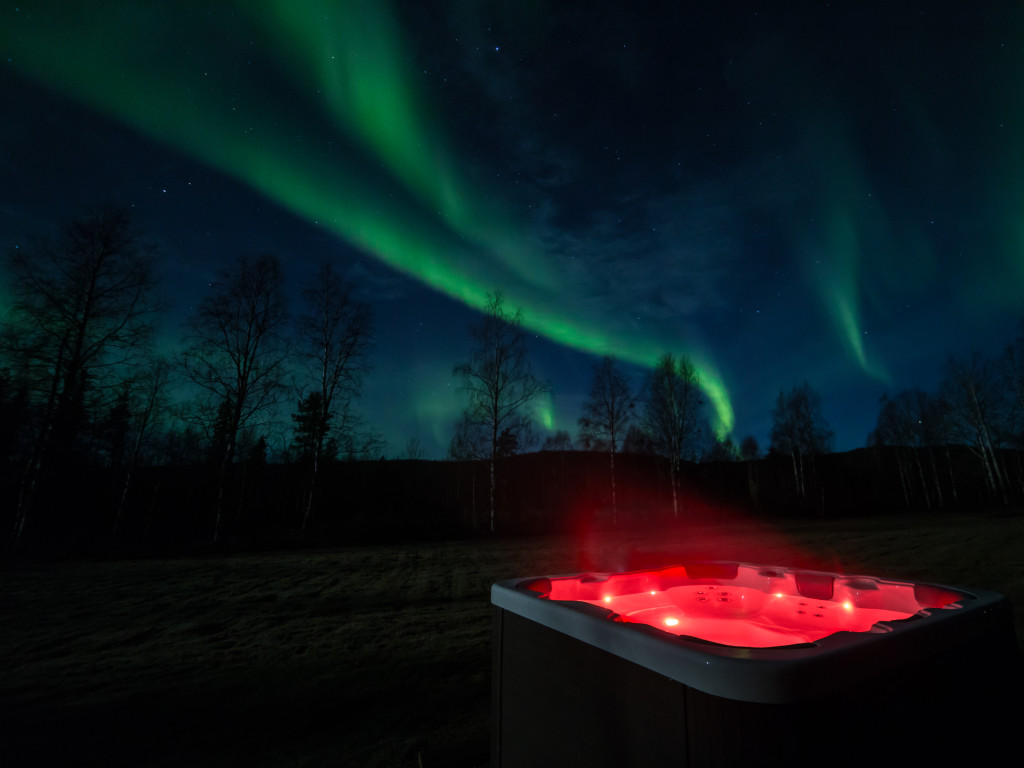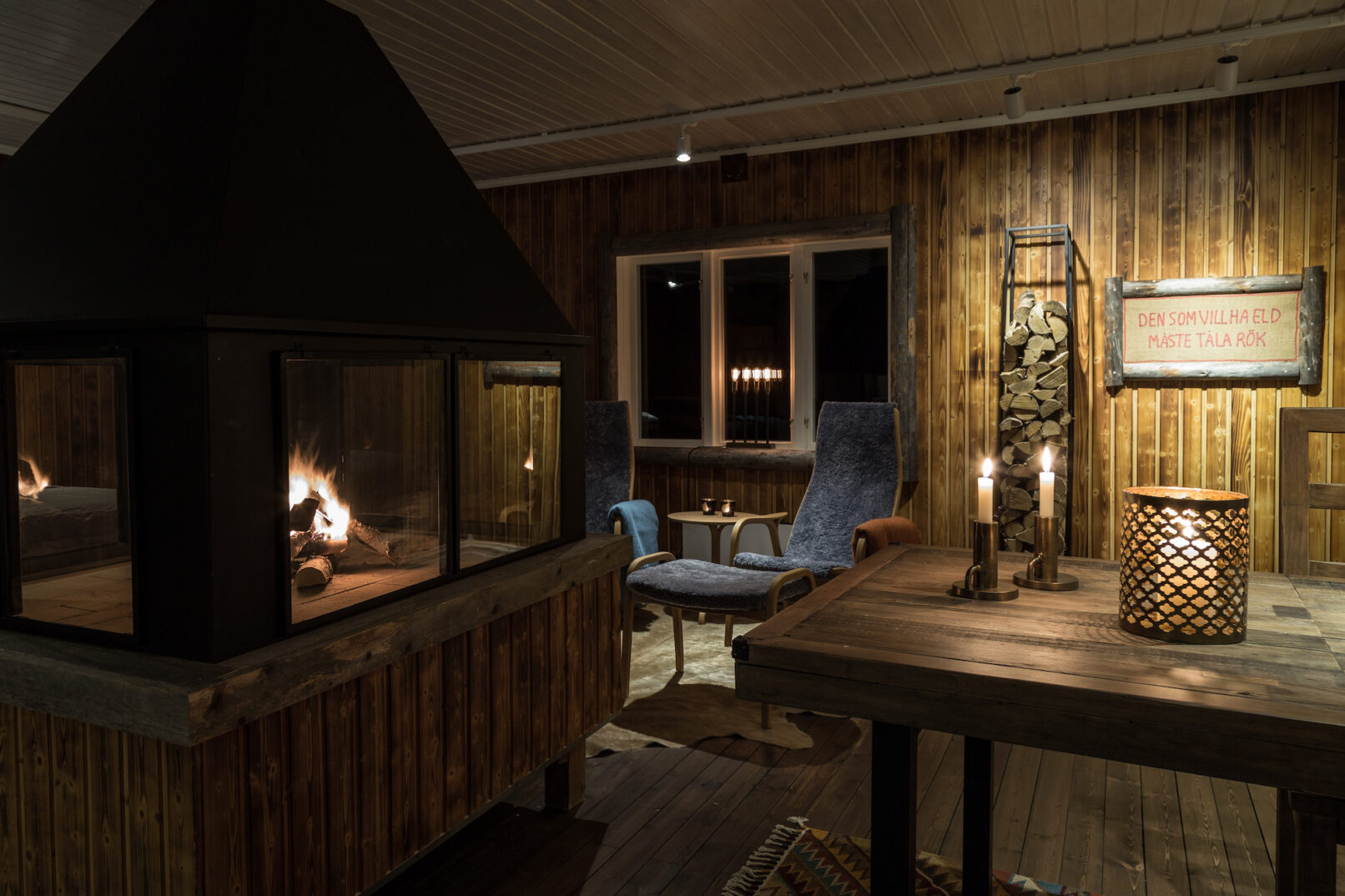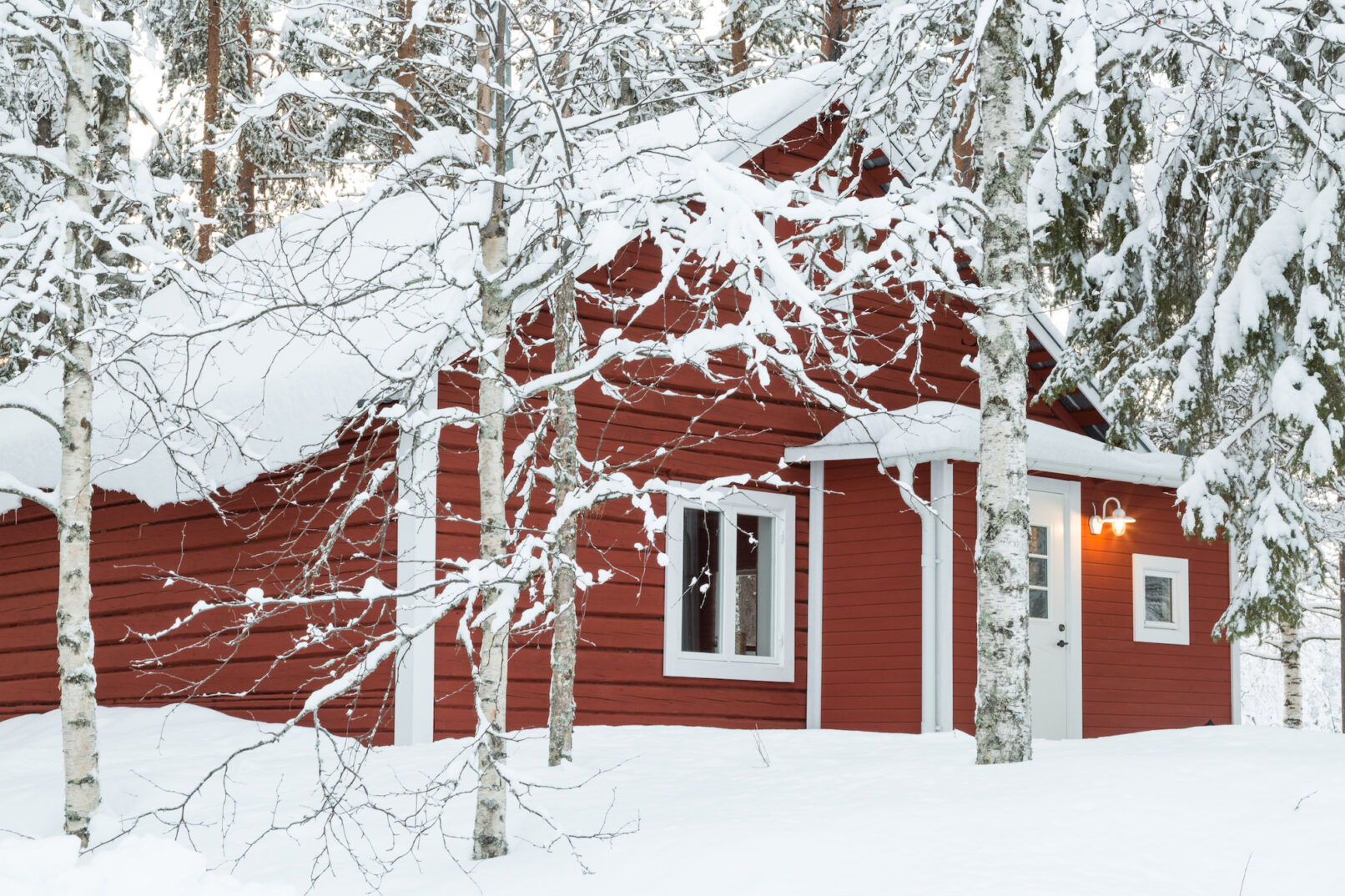Logger's Lodge
[cbxwpbookmarkbtn]
Logger’s Lodge är en lyxig och privat lodge för två personer. Här finner ni en radie med 5 kilometer natur som skiljer lodgen från närmaste granne. Placerad mitt i skogen med avsaknad av ljusföroreningar är lodgen en perfekt plats för att beskåda norrsken.
Den rena luften och totala tystnaden i det omgivande området gör detta till en perfekt plats för att främja djup avkoppling. En vedeldad bastu och badtunna utomhus finns tillgängliga för privat bruk när som helst, dag eller natt.
Med hjälp av lokala och traditionella råvaror från den Norrbottniska naturen serverar kocken ekologiska gourmeträtter direkt till er inne i lodgen.
Om ni behöver något under er vistelse så finner ni en iPad inne i lodgen från vilken ni kan skicka ett meddelande till värden. Här har ni full service dygnet runt och värden finns alltid i närheten.
Lite om lodgens historia: Historiskt var flottning ett vanligt sätt att transportera timmer uppe i norra Sverige. Virket flöt inåt från skogarna på strömmande bäckar och floder till sågverk vid kusten. De människor som arbetade med timmer var kända som flottare, och de hade ett mycket hårt och ofta farligt jobb.
Under denna period fanns flera strategiskt placerade timmerstugor nära älvarna och bäckarna, och de flesta byggdes under 1940-talet. Så sent som på 70- och 80-talet stoppades denna metod att transportera virke på och lastbilar samt tåg tog över. Logger’s Lodge är just en sådan timmerstuga från år 1942 med en stor central eldstad i mitten av stugan. Denna stuga fungerade som ett tillfälligt hem för upp till 16 flottare, som alla sov på våningssängar efter en hård dags arbete. Alla hade sin egen gjutjärnspanna och satt runt eldstaden för att laga mat. Ni kan fortfarande känna historien i byggnaden och i omgivningarna som påminner er om denna flottningsera.
The lodge has been carefully renovated into a romantic luxury suite for two people. The facade is painted in the Swedish traditional falu red color and the walls inside the lodge are wood panels that have been burned to emphasize the beautiful pattern of the wood. The Bodträskån river that transported the timber is just a stone's throw from the lodge.
LOGGER’S LODGE
Bodträskån 1
960 24 Harads
info@loggerslodge.com
+46 706 907 790




